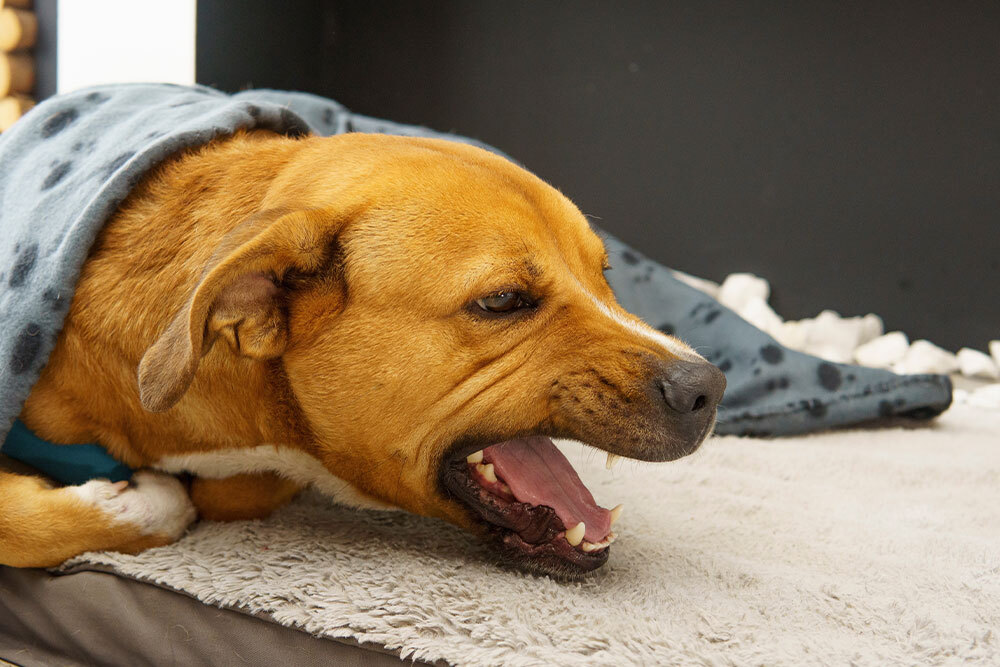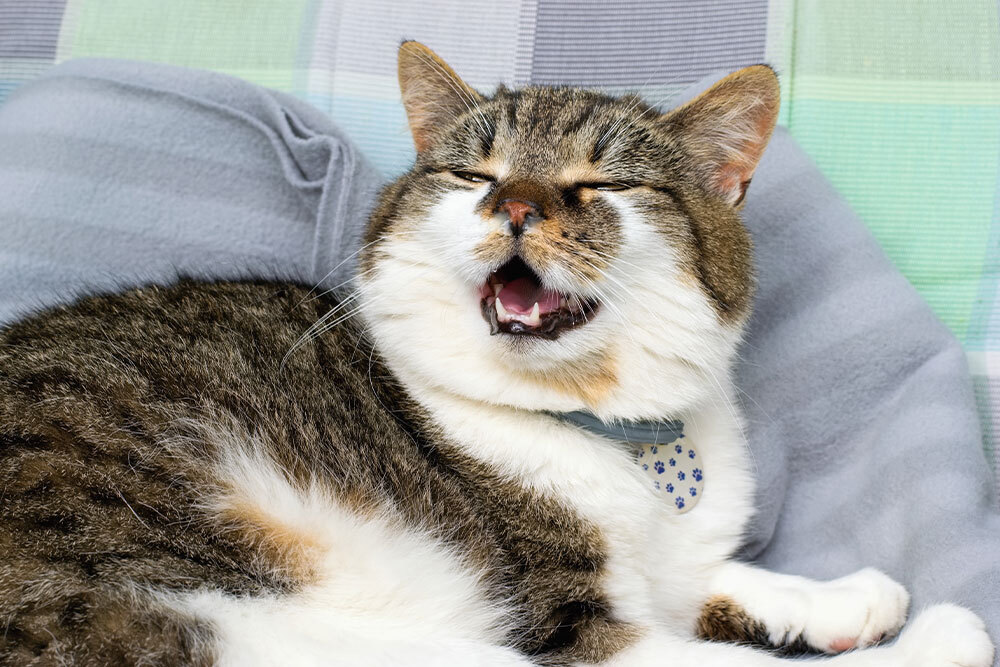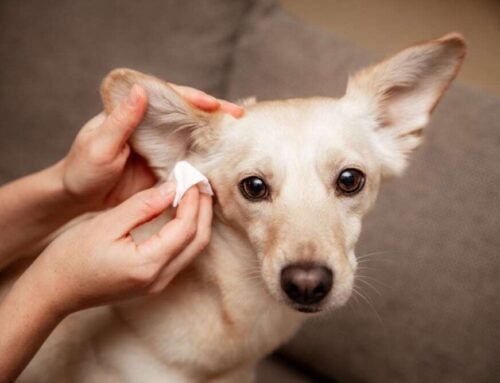Wheeze or Cough? Understanding Respiratory Sounds in Pets
A sudden cough, sneeze, or raspy breath from a pet can grab your attention- and spike anxiety- faster than almost anything else. Because respiratory issues range from harmless throat tickles to urgent emergencies, recognizing the difference is critical.
The team at Animal Medical Hospital of Naples answers these “Is this normal?” questions every day, guiding families toward calm, decisive care. Use the following overview to decode odd respiratory sounds, spot red-flag symptoms early, and keep your companion breathing easy.
What Normal Breathing Looks and Sounds Like
Most healthy pets breathe quietly, with smooth chest movement and no visible effort. A soft snore during sleep- especially in flat-faced breeds- is common. But any change in rhythm, effort, or noise deserves a closer look. Since pets can’t explain how they feel, you’re their best line of defense in catching issues early.
Decoding Common Respiratory Sounds
Coughing often serves a purpose, like clearing the throat, but persistent or harsh coughing can be a sign of more serious issues. Kennel cough is common in social dogs, but other concerns include heart disease, tracheal collapse in small breeds, pneumonia, bronchitis, cancers, or even heartworm infection. Coughing that comes with gagging, fainting, or exercise intolerance should be evaluated promptly.
Sneezing once in a while is fine, but frequent, intense sneezing or nasal discharge could signal something more serious. Possible causes include feline upper respiratory infections, nasal tumors or polyps, or allergies. Foreign bodies like grass awns and foxtails can lodge in a pet’s nose or throat, causing sudden sneezing. Dental disease may also be involved. Watch for swelling, loss of appetite, or pawing at the face.
Wheezing, which sounds like a high-pitched whistle during breathing, usually means the airways are narrowed. This can be caused by feline asthma, chronic bronchitis, allergies, or airway obstructions. If your pet is breathing with their mouth open, appears distressed, or has blue-tinged gums, it’s time for immediate care. This respiratory distress guide outlines the signs to watch for.
Reverse sneezing looks dramatic but is often harmless. It involves rapid, repeated inhalations and may resemble choking. It’s common in small breeds and can be triggered by excitement, pollen, or mild throat irritation. If episodes become frequent or interfere with normal breathing, call your vet.
Snoring is typical for breeds with short noses, but it can also result from excess weight, nasal congestion, or a more serious condition like Brachycephalic Obstructive Airway Syndrome. If snoring becomes louder, more labored, or disrupts sleep, it’s worth a closer look.
When It’s Time to Call the Vet
Breathing problems can change rapidly, so don’t wait if you notice:
- Frequent or worsening coughing or sneezing
- Wheezing with open-mouth breathing
- Gagging, choking, or pawing at the face
- Lethargy, fainting, or bluish gums
- Reduced appetite or energy levels
If you’re unsure, take a short video and note when symptoms occur. These details help your vet pinpoint the cause and begin treatment quickly. Contact us here to discuss concerns or schedule an exam.
How We Diagnose Respiratory Conditions
Every visit for a cough, sneeze, or wheeze begins with careful listening- both to your description and to your pet’s chest with a stethoscope. After the physical exam, we layer diagnostics in stages so we can pinpoint the problem without unnecessary tests. Chest X-rays reveal whether lungs look cloudy from pneumonia, compressed by fluid, or narrowed by a collapsing trachea. Bloodwork clarifies whether infection, parasites, or systemic inflammation is at play, and we always include a heartworm test, because Naples’ year-round warmth keeps mosquitoes active.
When surface imaging leaves unanswered questions, we may recommend a rhinoscopy or bronchoscopy; a tiny camera slips into the nose or airways to locate hidden polyps, foxtail seeds, or scar tissue. If a heart murmur or nighttime coughing suggests cardiac disease, an echocardiogram lets us watch each chamber pump in real time.
Treatment and At-Home Support
Because no two pets- and no two coughs- are alike, therapy is customized. A bacterial infection might clear with a short course of antibiotics and rest, while inflammatory airway disease needs inhaled steroids or bronchodilators to reopen narrowed passages. Structural issues such as nostrils that are too small or a stubborn nasal polyp sometimes call for surgical correction, a service we perform right here at Animal Medical Hospital of Naples.
Lifestyle tweaks often work hand-in-hand with medicine. Overweight pets breathe easier after gradual weight loss and a diet tailored to reduce excess calories without sacrificing nutrients. Owners of brachycephalic (flat-faced) breeds and toy breeds learn to swap a collar for a front-clip harness to take pressure off the windpipe. A few environmental upgrades– HEPA air purifiers, a bedroom humidifier, and fragrance-free cleaners- can transform an allergy sufferer’s quality of life. Our team will outline exactly which measures matter most for your pet and check in regularly to celebrate progress or fine-tune the plan.
Prevention Starts at Home
The quietest airways are usually the best protected. Keep vaccinations current to block contagious illnesses like kennel cough and feline viral infections. In southwest Florida, heartworm prevention is non-negotiable; one missed dose invites parasites that can lodge in lungs and heart. Indoors, skip scented candles and heavy aerosols, wash pet bedding weekly, and run the A/C on high-pollen days. Simple habits such as wiping paws after grass time and scheduling twice-yearly wellness exams at Animal Medical Hospital of Naples catch small irritations before they turn into chronic disease.
Frequently Asked Questions
Should I limit outdoor time if my pet has allergies?
Fresh air and exercise still matter. Check pollen counts, choose low-pollen times (early morning after a rain), and wipe your pet’s coat and paws when you come indoors.
Can I use over-the-counter human meds for sneezing?
Please call first. Many human decongestants and cough suppressants are dangerous for pets, and correct dosing of approved drugs varies by species and size.
Is snoring always normal in a short-nosed breed?
Some gentle rumbling is expected, but gasping, choking, or any increase in volume deserves an exam. Early intervention can prevent long-term airway damage.
Breathe Easier with Trusted Care
Odd breathing noises can be startling, but you do not have to interpret them alone. Whether your pet needs a simple antihistamine plan or advanced imaging, the team at Animal Medical Hospital of Naples is ready to help. Contact us to ask a question, or schedule an appointment to put worries to rest and keep every breath comfortable.







Leave A Comment